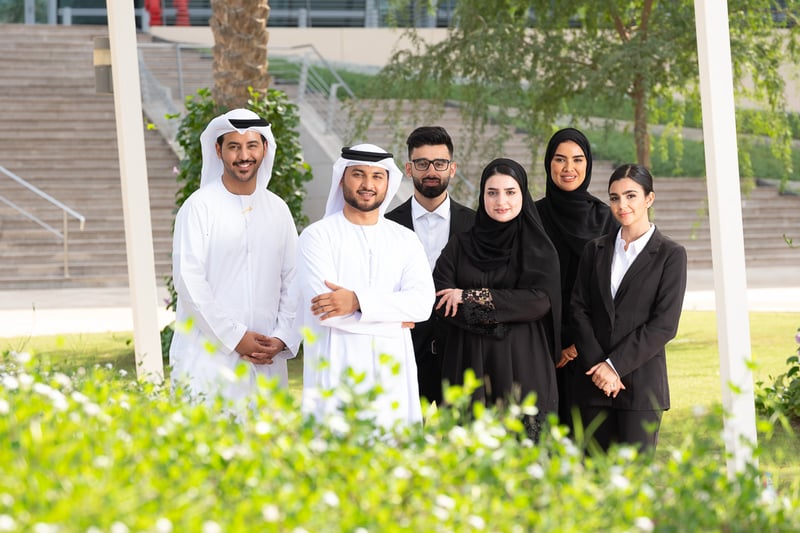Environmental Science vs Environmental Engineering: What is the Difference?
20 Dec, 2023
In a world that knows environmental sustainability is essential, distinguishing between environmental science and environmental engineering is key. Both fields, often misunderstood as identical, are crucial for sustainability. This blog post examines the differences and interconnections of the two fields, highlighting their collective significance in environmental management, essential for those dedicated to sustainable practices professionally.

Unravelling the World of Environmental Science
Defining Environmental Science: A Multidisciplinary Approach
Environmental science is a broad field that studies the impact of human activities on the environment, exploring ecosystems, biodiversity, natural resource management, pollution, climate change, and other environmental issues. It focuses on understanding and quantifying human alterations to nature and predicting their consequences, requiring a deep understanding of the complexity of natural systems and human influence.
The Scope of Environmental Science: Understanding the Natural World
Environmental scientists research earth's processes and their alteration by human activities, covering issues like pollution and global warming. Their work informs public policy and environmental regulations, crucial for sustainable practices. They also develop strategies to mitigate or reverse environmental degradation, playing a key role in addressing environmental challenges.
The Dynamic Field of Environmental Engineering
What is Environmental Engineering? A Practical Approach to Sustainability
Environmental engineers apply scientific, and engineering principles and technologies to develop solutions to address environmental issues. Environmental engineers design and implement systems and technologies to manage wastewater treatment facilities and waste disposal mechanisms as well as water and air pollution control systems. Their work is essential in preserving and protecting the natural environment for future generations.
The Role of Environmental Engineering in Modern Society
Environmental engineers are vital in creating waste treatment, pollution control, and resource management infrastructure, balancing societal needs with environmental protection. Their role, which blends engineering with environmental science, economics, and policy knowledge, is crucial in addressing global challenges like climate change and resource scarcity. These professionals are key to sustainable development efforts.
Comparing and Contrasting: Environmental Science vs. Environmental Engineering
Core Differences in Focus and Methodology
Environmental science focuses on researching the environment and human impacts, while environmental engineering focuses on applying engineering solutions to solve environmental issues. For instance, scientists study pollutant effects on ecosystems, whereas engineers create technologies to mitigate these pollutants.The Interplay of Environmental Science and Environmental Engineering in Environmental Solutions
Each of these disciplines plays a vital role in safeguarding the environment and promoting a more sustainable relationship between humans and nature. However, despite their distinct approaches, the integrated approach of environmental science and environmental engineering is crucial in addressing global challenges for several reasons:
- Knowledge Meets Application: Combining the expertise of environmental engineers and scientists allows for a comprehensive understanding of environmental issues. For example, environmental science provides essential insights into ecological processes, which environmental engineering uses to develop practical, sustainable solutions like renewable energy systems and efficient waste management.
- Multidisciplinary Problem-Solving: Combining the research expertise of environmental scientists with the practical skills of environmental engineers leads to comprehensive strategies that address both the symptoms and root causes of environmental issues.
- Adaptive and Innovative Solutions Through Teamwork: Collaboration between the two fields not only enable the creation of adaptable and resilient solutions but it also can drive innovative solutions to address environmental challenges, such as the creation of biofiltration systems, merging the understanding of ecological and natural processes with engineering design.
- Global and Local Benefits: The joint efforts of environmental scientists and environmental engineers have a wide-reaching impact, benefiting communities worldwide. Collaborative efforts can contribute to public education and awareness, communicating complex environmental issues in more accessible ways and encouraging behaviour changes for sustainability,
The Importance of Environmental Management in Today’s World
Addressing Global Challenges with Integrated Approaches
Environmental management is crucial in today's world, where environmental challenges are complex and multifaceted. It ensures the sustainability of resources, protects ecosystems, safeguards public health, encourages economic growth through sustainable practises, and fosters global cooperation to address pressing environmental challenges.
Integrated approaches that combine the insights of environmental science with the practical solutions of environmental engineering are essential for developing effective strategies for sustainability. This integrated approach is at the heart of effective environmental management, ensuring that solutions are not only technically sound but also environmentally and socially responsible.
The Role of Educated Environmental Professionals in Shaping a Sustainable Future
Professionals educated in environmental science and environmental engineering are uniquely positioned to contribute to sustainable development. They play a critical role in designing and implementing strategies that balance ecological health with economic and social well-being. Their expertise is also crucial in navigating the complexities of environmental issues and driving the transition towards a more sustainable and resilient world.
Zayed University's Master of Science in Environment and Sustainability Sciences
Zayed University's Master of Science in Environment and Sustainability Sciences program prepares students with the expertise, knowledge, and skills to analyze and advise on the implementation of an environmental management system or improve the environmental performance of any organization.
Six Key Features and Unique Aspects of the Graduate Program
- Comprehensive Curriculum: Students study a wide array of research areas including water sustainability, green technologies, climate change, sustainability planning and management, remote sensing and GIS, biodiversity and conservation, ecosystem functions, and circular economy.
- Strategic Planning: Students can develop strategic plans that integrate environmental concerns into various sectors such as agriculture, industry, and waste management, ensuring sustainability is a core consideration.
- Influencing Policy Creation and Implementation: Students can contribute to the development and implementation of environmental policies, using their expertise to advise on environmental and sustainability initiatives or guide decision-makers towards sustainable practices and resource management.
- Interdisciplinary Collaboration: Students are equipped with the skills to collaborate with professionals from various disciplines including government agencies, businesses, communities, and NGOs to develop integrated and holistic approaches to address complex environmental problems, recognizing the interconnectedness of environmental social, and economic systems.
- Research and Development: Students are conducting research to explore new methods, materials, and technologies that, i.e., improve environmental quality, reduce emissions, conserve resources, and enhance ecosystem health.
- Field Experience: Students gain a balanced perspective that combines theoretical knowledge with practical expertise, making them more competent and competitive to lead and innovate in the job market.
Career Pathways and Professional Opportunities
Upper-level management and other career opportunities with organizations ranging from government resource management and regulatory agencies, non-governmental organizations, conservation organizations, and environmental consulting firms to almost any industry including chemistry, engineering, logistics, and transportation will continue to emerge in the years ahead. Studying more than one academic discipline and developing an in-demand transferable skillset prepares students for a wide scope of careers such as environmental auditors, compliance managers, consultants, directors, engineers, field supervisors, legal experts, scientists, specialists or policy managers, occupational health and safety officers, nature conservation managers and risk management officers.
Join Zayed University’s Master of Science in Environment and Sustainability Sciences program and play a crucial role in steering society towards a sustainable future. Contact the College of Natural and Health Sciences at +971-2-599-3605 / dgs.recruitment@zu.ac.ae





